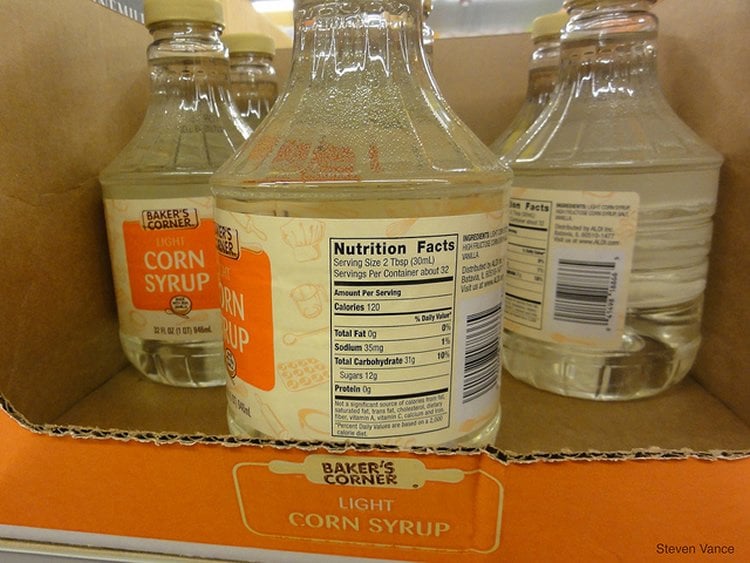Summary: Researchers report adolescent rats exposed to high fructose corn syrup in their diets were more prone to experience symptoms associated with bipolar disorder.
Source: Vanderbilt University.
Since the introduction of high fructose corn syrup (HFCS) in 1970s, it has become the major caloric sweetener used in many soft drinks and processed foods. Much effort has been put in to characterize the cardiometabolic consequences of HFCS consumption, such as insulin resistance, type 2 diabetes mellitus, metabolic syndrome, obesity and premature cardiovascular events. However, little is known about how HFCS consumption effects mood-related behaviors, especially in the adolescents, the top consumers of drinks and foods enriched by HFCS.
In order to address this question, researches from Hacettepe University Medical School fed adolescent rats with HFCS solution, content of which is strikingly similar to the HFCS content of sugar sweetened soft drinks available for human consumption. Adolescent rats fed with HFCS solution showed insulin resistance and had more body fat compared to rats given tap water.
In addition, these rats showed increased activity (hyperlocomotion), decreased anxiety with increased risk-taking behaviors, increased social and sexual reward-seeking behaviors, and increased sensitivity to behavioral despair with impairments in learning and memory; all of which are characteristically seen in patients with bipolar disorder.
Researchers found out that these rats showed increased excitability in their hippocampi, which is known as one of the earliest endophenotypic manifestation of bipolar disorder. This hyperexcitability was due to both increased presynaptic release probability and increased readily available pool of AMPA receptors to be incorporated into the postsynaptic membrane.

Additionally, TDZD-8 treatment was found to restore behavioral and electrophysiological disturbances associated with HFCS consumption by inhibition of GSK-3B, the most probable mechanism of action of lithium for its mood-stabilizing effects in patients with bipolar disorder.
Note: This research article was submitted to Neuroscience News by Baris Alten.
Source: Baris Alten – Vanderbilt University
Publisher: Organized by NeuroscienceNews.com.
Image Source: NeuroscienceNews.com image is credited to Steven Vance. Licensed CC BY-NC-SA 2.0.
Original Research: Abstract for “High‐fructose corn syrup consumption in adolescent rats causes bipolar‐like behavioural phenotype with hyperexcitability in hippocampal CA3‐CA1 synapses” by Baris Alten, Metin Yesiltepe, Erva Bayraktar, Sadik Taskin Tas, Ayse Yesim Gocmen, Canan Kursungoz, Ana Martinez, and Yildirim Sara in British Journal of Pharmacology. Published February 2019.
doi:10.1111/bph.14500
[cbtabs][cbtab title=”MLA”]Vanderbilt University “High Fructose Corn Syrup Consumption Linked to Bipolar Like Behaviors: Adolescent Rat Study.” NeuroscienceNews. NeuroscienceNews, 25 February 2019.
<https://neurosciencenews.com/high-fructose-syrup-bipolar-10810/>.[/cbtab][cbtab title=”APA”]Vanderbilt University (2019, February 25). High Fructose Corn Syrup Consumption Linked to Bipolar Like Behaviors: Adolescent Rat Study. NeuroscienceNews. Retrieved February 25, 2019 from https://neurosciencenews.com/high-fructose-syrup-bipolar-10810/[/cbtab][cbtab title=”Chicago”]Vanderbilt University “High Fructose Corn Syrup Consumption Linked to Bipolar Like Behaviors: Adolescent Rat Study.” https://neurosciencenews.com/high-fructose-syrup-bipolar-10810/ (accessed February 25, 2019).[/cbtab][/cbtabs]
Abstract
High‐fructose corn syrup consumption in adolescent rats causes bipolar‐like behavioural phenotype with hyperexcitability in hippocampal CA3‐CA1 synapses
Background and Purpose
Children and adolescents are the top consumers of high‐fructose corn syrup (HFCS) sweetened beverages. Even though the cardiometabolic consequences of HFCS consumption in adolescents are well known, the neuropsychiatric consequences have yet to be determined.
Experimental Approach
Adolescent rats were fed for a month with 11% weight/volume carbohydrate containing HFCS solution, which is similar to the sugar‐sweetened beverages of human consumption. The metabolic, behavioural and electrophysiological characteristics of HFCS‐fed rats were determined. Furthermore, the effects of TDZD‐8, a highly specific GSK‐3B inhibitor, on the HFCS‐induced alterations were further explored.
Key Results
HFCS‐fed adolescent rats displayed bipolar‐like behavioural phenotype with hyperexcitability in hippocampal CA3‐CA1 synapses. This hyperexcitability was associated with increased presynaptic release probability and increased readily available pool of AMPA receptors to be incorporated into the postsynaptic membrane, due to decreased expression of the neuron‐specific α3‐subunit of Na+/K+‐ATPase and an increased ser845‐phosphorylation of GluA1 subunits (AMPA receptor subunit) respectively. TDZD‐8 treatment was found to restore behavioural and electrophysiological disturbances associated with HFCS consumption by inhibition of GSK‐3B, the most probable mechanism of action of lithium for its mood‐stabilizing effects.
Conclusion and Implications
This study shows that HFCS consumption in adolescent rats led to a bipolar‐like behavioural phenotype with neuronal hyperexcitability, which is known to be one of the earliest endophenotypic manifestations of bipolar disorder. Inhibition of GSK‐3B with TDZD‐8 attenuated hyperexcitability and restored HFCS‐induced behavioural alterations.






